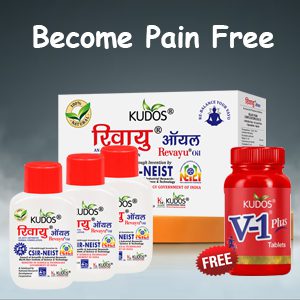Ayurvedic Medicine for Arthritis: Using Joint Pain Tablets
Millions of individuals throughout the world are afflicted by the prevalent disease known as arthritis. It refers to the inflammation of one or more joints, causing pain, stiffness, and reduced mobility. The most prevalent types of arthritis include osteoarthritis, rheumatoid arthritis, and gout. Arthritis can significantly impact a person’s quality of life, making everyday activities challenging and affecting their overall well-being.
Ayurveda, an ancient Indian system of medicine, offers a holistic approach to managing arthritis. Rooted in the belief that the body, mind, and spirit are interconnected, Ayurveda focuses on restoring balance and harmony to achieve optimal health. In the context of arthritis, Ayurveda emphasizes the importance of identifying the underlying causes of the condition and addressing them through natural remedies, lifestyle modifications, and dietary changes.
Ayurvedic treatment for arthritis is personalized, taking into account an individual’s unique constitution or dosha (Vata, Pitta, or Kapha) and the specific imbalances present. It aims to alleviate pain, reduce inflammation, improve joint mobility, and enhance overall well-being. Ayurvedic treatments for arthritis encompass a range of therapies, including herbal medicines, dietary adjustments, lifestyle modifications, massage, yoga, meditation, and detoxification techniques.
The holistic nature of Ayurveda is particularly beneficial for arthritis management as it addresses not only the physical symptoms but also considers factors such as diet, stress, emotional well-being, and overall lifestyle. This comprehensive approach aims to restore harmony and balance in the body, supporting the body’s innate healing abilities and promoting long-term relief from arthritis symptoms.
Ayurvedic herbs and formulations play a vital role in the management of arthritis. Some commonly used herbs in Ayurveda for arthritis include Ashwagandha, Guggulu, Turmeric, Boswellia, and Shallaki. These herbs possess anti-inflammatory properties, help strengthen the joints, reduce pain, and improve mobility. Ayurvedic practitioners may prescribe specific herbal formulations based on the individual’s dosha and the nature of their arthritis.
Understanding Arthritis

Arthritis is a term used to describe the inflammation of one or more joints in the body. It is a common ailment that impacts people of various ages, genders, and socioeconomic situations.There are several types of arthritis, with the most common ones being osteoarthritis, rheumatoid arthritis, and gout.
- Osteoarthritis: This is the most common type of arthritis and is often associated with aging and wear and tear on the joints. It occurs when the cartilage that cushions the ends of the bones within a joint starts to break down, leading to pain, stiffness, and reduced mobility.
- Rheumatoid arthritis: Rheumatoid arthritis is an autoimmune condition that results in persistent joint inflammation. It occurs when the immune system mistakenly attacks the synovium (the lining of the joints), leading to joint pain, swelling, and deformity.
- Gout: A form of arthritis characterized by sporadic, intense bouts of joint pain, redness, and edema. It is caused by the accumulation of urate crystals in the joints, often due to an excess of uric acid in the body.
Arthritis can significantly impact a person’s quality of life, causing a range of symptoms and challenges. Common symptoms of arthritis include joint pain, stiffness, swelling, redness, and limited range of motion. The severity of these symptoms can vary, and they could get worse with time.
Individuals with arthritis often face challenges in performing daily activities, such as walking, climbing stairs, and gripping objects. The pain and stiffness can make it difficult to engage in physical activities and exercise, leading to a sedentary lifestyle. Furthermore, arthritis can affect one’s emotional well-being, causing frustration, anxiety, and depression due to the limitations it imposes on daily life.
Ayurvedic Principles For Managing Arthritis
According to Ayurveda, the three doshas (Vata, Pitta, and Kapha) are biological energies that govern various functions in the body. Each person’s particular blend of these doshas determines their distinct physical and mental makeup.In the context of arthritis, an imbalance in the Vata dosha is often considered a primary factor.
Vata is responsible for movement and governs the joints, muscles, and nervous system. When Vata becomes aggravated or imbalanced, it can lead to symptoms such as joint pain, stiffness, and dryness. Therefore, the key principle in managing arthritis in Ayurveda is to balance the Vata dosha.
To balance Vata, Ayurvedic treatments focus on incorporating warm, grounding, and nourishing practices. This may include consuming warm and easily digestible foods, using warming herbs and spices, practicing gentle and soothing exercises like yoga or tai chi, and maintaining a regular daily routine. These practices help reduce Vata’s excess and restore balance to the joints and overall well-being.
Importance of proper digestion and elimination:
In Ayurveda, digestion is considered the foundation of good health. A strong digestive fire, known as Agni, is crucial for the efficient breakdown and absorption of nutrients. When digestion is weak or impaired, toxins (ama) can accumulate in the body, leading to inflammation and joint problems.
To support proper digestion and elimination, Ayurvedic recommendations include eating according to one’s digestive capacity, favoring cooked foods over raw ones, avoiding incompatible food combinations, and practicing mindful eating. Additionally, incorporating herbs and spices that aid digestion, such as ginger, cumin, and fennel, can be beneficial.
Promoting regular bowel movements is equally important to prevent the accumulation of toxins. Ayurvedic remedies such as Triphala, a blend of three fruits, are commonly used to support healthy elimination and detoxification.
Lifestyle modifications for arthritis management:
Ayurveda places great emphasis on lifestyle modifications as a means of managing arthritis. These modifications aim to support overall health and well-being while addressing the root causes of the condition. Some key lifestyle recommendations include:
- Regular exercise: Engaging in regular physical activity is important for maintaining joint flexibility, improving circulation, and strengthening the muscles around the joints. Low-impact exercises like walking, swimming, and yoga are generally recommended for individuals with arthritis.
- Joint care: Protecting the joints from excessive strain or injury is crucial. This can be achieved by maintaining proper posture, using supportive devices like orthotics or braces if needed, and avoiding activities that exacerbate joint pain.
- Stress management: Chronic stress can worsen arthritis symptoms. Ayurveda emphasizes the importance of managing stress through techniques like meditation, deep breathing exercises, and regular relaxation practices. This can help reduce inflammation, promote a sense of calmness, and support overall well-being.
- Ayurvedic therapies: Ayurveda offers a range of therapies that can be beneficial for arthritis management. These may include Ayurvedic massages (Abhyanga), herbal poultices (Potli), therapeutic oils (Taila), and heat therapies (Swedana). These treatments help reduce pain, improve circulation, and nourish the joints.
Ayurvedic Joint Pain Tablets
In Ayurveda, joint pain tablets are a popular form of Ayurvedic medicine specifically formulated to alleviate joint pain, inflammation, and stiffness. These tablets are carefully crafted using a combination of traditional Ayurvedic herbs and natural ingredients known for their therapeutic properties in promoting joint health.
Ingredients commonly used in joint pain tablets:
- Guggulu: Guggulu, also known as Indian Bdellium, is a resinous substance extracted from the Commiphora mukul tree. It has been used for centuries in Ayurvedic medicine for its anti-inflammatory and analgesic properties. Guggulu is believed to help reduce joint inflammation, improve joint mobility, and support overall joint health.
- Ashwagandha: Ashwagandha, scientifically known as Withania somnifera, is an adaptogenic herb known for its rejuvenating and anti-inflammatory properties. It is often included in joint pain tablets for its ability to relieve pain, reduce inflammation, and promote joint strength and flexibility.
- Shallaki: Shallaki, or Boswellia serrata, is a resin extract derived from the Boswellia tree. It contains potent anti-inflammatory compounds that can help reduce joint inflammation and alleviate pain. Shallaki is widely used in Ayurvedic formulations for its beneficial effects on joint health.
- Guduchi: Guduchi, also known as Tinospora cordifolia, is a herb renowned for its immune-modulating and anti-inflammatory properties. It is believed to support joint health by reducing inflammation, strengthening the joints, and promoting natural healing processes.
- Turmeric: Turmeric, or Curcuma longa, is a vibrant yellow spice widely recognized for its powerful anti-inflammatory and antioxidant properties. It contains a bioactive compound called curcumin, which helps reduce joint pain and inflammation, improve joint flexibility, and support overall joint health.
Therapeutic benefits and mechanisms of action:
Ayurvedic joint pain tablets offer a range of therapeutic benefits for individuals experiencing joint pain and stiffness. The natural ingredients used in these tablets work synergistically to provide the following effects:
- Anti-inflammatory action: Many herbs used in joint pain tablets have potent anti-inflammatory properties. They help reduce inflammation in the joints, relieving pain and discomfort associated with conditions like arthritis.
- Analgesic effect: Ayurvedic herbs such as Ashwagandha and Shallaki possess analgesic properties, which can help alleviate joint pain and provide relief.
- Joint lubrication: Some ingredients, such as Guggulu and Turmeric, are known for their ability to promote joint lubrication and improve joint mobility. This can result in reduced friction, better joint function, and increased flexibility.
- Cartilage support: Certain herbs used in joint pain tablets have been traditionally believed to support cartilage health and promote its regeneration. This is crucial for maintaining the integrity of the joints and preventing further degeneration.
- Immune modulation: Ayurvedic ingredients like Guduchi possess immune-modulating properties, which can help regulate immune responses associated with joint inflammation and autoimmune conditions like rheumatoid arthritis.
Benefits of Ayurvedic Joint Pain Tablets for Arthritis
One of the primary benefits of Ayurvedic joint pain tablets for arthritis is their ability to reduce joint inflammation and alleviate pain. The herbal ingredients used in these tablets, such as Guggulu, Ashwagandha, and Shallaki, possess potent anti-inflammatory properties. They help inhibit the production of inflammatory molecules and enzymes in the joints, thereby reducing swelling and discomfort. By addressing the underlying inflammation, Ayurvedic joint pain tablets can provide relief from arthritis symptoms and improve overall joint function.
Support for joint mobility and flexibility:
Ayurvedic joint pain tablets are formulated to support joint mobility and enhance flexibility. The natural ingredients used in these tablets, such as Turmeric and Guduchi, have been traditionally believed to improve joint range of motion and reduce stiffness. They help lubricate the joints, reduce friction, and enhance joint mobility, allowing individuals with arthritis to move more comfortably and freely. By promoting flexibility, Ayurvedic joint pain tablets can support an active and independent lifestyle.
Protection and nourishment of joint tissues:
Ayurvedic joint pain tablets offer benefits beyond symptom relief. These formulations are designed to provide nourishment and protection to the joint tissues. The herbs used in these tablets, such as Ashwagandha and Guggulu, are known for their ability to support cartilage health and promote its regeneration. Cartilage acts as a cushion between the bones, and its deterioration is a common feature of arthritis. By nourishing and protecting the joint tissues, Ayurvedic joint pain tablets can help slow down the progression of joint degeneration and preserve joint function.
Holistic approach to joint health:
What sets Ayurvedic joint pain tablets apart is their holistic approach to joint health. Ayurveda considers the individual as a whole, taking into account not just the physical symptoms but also the person’s mental, emotional, and spiritual well-being. Ayurvedic joint pain tablets are formulated based on the principles of Ayurveda, which focus on restoring balance in the body and addressing the root cause of the problem. This holistic approach aims to promote overall well-being and long-term joint health.
Conclusion
In conclusion, Ayurvedic joint pain tablets offer a range of benefits for individuals seeking relief from arthritis symptoms and improved joint health. These tablets provide a holistic approach to arthritis management by reducing joint inflammation, alleviating pain, supporting joint mobility, and nourishing the joint tissues. The natural ingredients used in Ayurvedic joint pain tablets, such as Guggulu, Ashwagandha, and Turmeric, have been traditionally recognized for their anti-inflammatory, analgesic, and cartilage-protective properties.
Recommended Joint Pain Medicine
When it comes to joint pain relief, there are several recommended medicines available. To determine the most suitable medicine based on the specific type and severity of joint pain. Additionally, natural remedies such as Ayurvedic joint pain medicines or topical creams.




